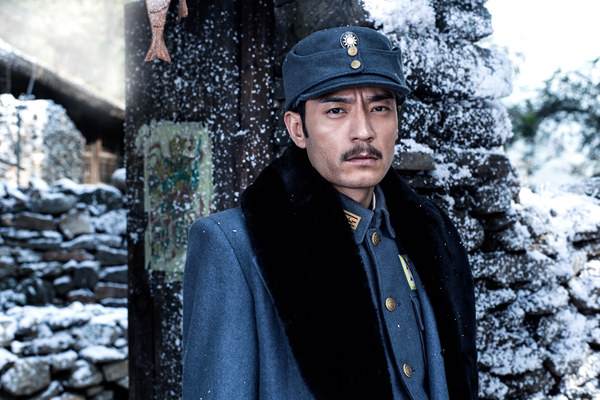Xu Haofeng's new kung fu film makes mark at festivals
 |
|
Li Guangjie plays one of the lead roles in The Hidden Sword, which is about a mysterious swordsman in the 1930s and '40s. [Photo provided to China Daily] |
In the documentary, stars of The Hidden Sword cast, such as Chun Xia, Geng Le and Li Guangjie, are seen waking early daily and taking part in typical training regimes of martial arts.
"The first month was stressful. But later I discovered inner peace and got immersed in my role," actress Chun says.
Unlike many other directors of his generation, who began their careers on film sets, Xu entered the business due to his teenage fascination with martial arts.
He has written an oral-history book, several novels and dozens of movie reviews - most of which are about martial arts masters and their worlds.
Most of his books are set between 1920 and 1940.
"Most Chinese martial artists obey the centuries-old tradition of keeping their skills a secret. They're only allowed to be passed on to a few disciples. As my grandfather was once a member of the martial arts society, I have been lucky to hear some stories from such inner circles," he says.
The Hidden Sword is rooted in one such story. Set in the 1930s and '40s, the plot revolves around a mysterious swordsman, who coaches Chinese soldiers on fighting techniques to win a battle on the Great Wall against invading Japanese troops.
"It may be confusing to Western audiences that Chinese martial artists insisted on fighting with fists and kicks even when they lived in a world of guns and cannons. I try to explain the faith in my films," he says.
Some critics predict Xu is a likely successor of the legacies of Bruce Lee and Jackie Chan. He has become the latest Chinese filmmaker to arouse Western interest in Chinese martial arts films.
Also as a scholar researching martial arts history, he believes the popularity of kung fu in the West has laid the ground for more such Chinese movies.
"Bruce Lee's action movies have influenced many Western fans and also inspired some leading Wing Chun (a form of Chinese martial arts) practitioners to found martial arts schools overseas," Xu says.
"It was quite interesting that the founders were smart. They figured out a shortcut - by recruiting and teaching some local karate practitioners, who were good at stunts, the Wing Chun schools quickly expanded in the West."









